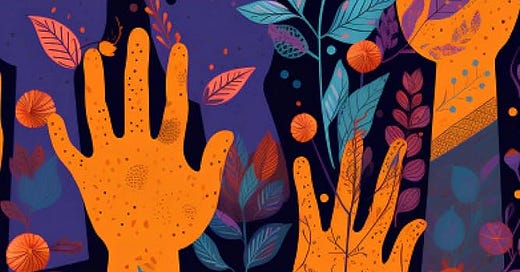I have mentioned on the podcast before, and maybe even this newsletter, that while I am not a cataloger (and have no desire to be one), I learned a lot from my cataloging class in library school. If nothing else, knowing how MARC records and subject headings are constructed helps guide my catalog searches.
The catalog, of course, is the entry point to the collection for many of our patrons, and we need it to be as inclusive as possible so that everyone can find what they are looking for. My guests on the newest episode of the podcast go in depth on that topic, including tips on how even the smallest library can get started in making their own catalog records more inclusive.
Check out my interview with Billey Albina (née Amber Billey), Elizabeth Nelson, and Rebecca Uhl now, either as a podcast or the transcript!
Filling a gap in the literature, this volume provides librarians and catalogers with practical approaches to reparative cataloging as well as a broader understanding of the topic and its place in the technical services landscape.
As part of the profession's ongoing EDISJ efforts to redress librarianship’s problematic past, practitioners from across the field are questioning long-held library authorities and standards. They’re undertaking a critical and rigorous re-examination of so-called “best” practices and the decisionmakers behind them, pointing out heretofore unscrutinized injustices within our library systems of organization and making concrete steps towards progressive change. This collection from Core details the efforts of some of the many librarians who are working to improve our systems and collections, in the process inspiring those who have yet to enact change by demonstrating that this work is scalable, possible, and necessary. From this book, readers will
gain an understanding of the theoretical underpinning for the actions that create our history and be challenged to reconsider their perspectives;
learn about the important role of the library catalog in real-world EDISJ initiatives through examples ranging from accessibility metadata and gendered information to inclusive comics cataloging and revising LC call numbers for Black people and Indigenous people;
discover more than a dozen case studies drawn from a variety of contexts including archives, academic and public libraries, and research institutions; and
see ways to incorporate these ideas into their own work, with a variety of sample policies, “how to” documents, and other helpful tools provided in the text.
Ready Reference
Mentioned on the podcast:
Inclusive Cataloging: Histories, Context, and Reparative Approaches
Core | Metadata and Collections Section | Diversity & Inclusion Committee
Billey Albina (née Amber Billey) served as the Chair of the Leadership Team for the Core Metadata & Collection Section and Co-Chair of the Core Diversity and Inclusion Committee. She is a member of the PCC Advisory Committee on Diversity, Equity, and Inclusion, and was Chair of the PCC Ad Hoc Task Group on Gender in Name Authority Records. She serves on the Advisory Board for the Digital Transgender Archive, and the editorial board for the Homosaurus – a linked data thesaurus for the LGBTQ+ community. Previously, she was the Associate Director for Bibliographic Services at Bard College.
Elizabeth Nelson is the Cataloging and Collection Development Librarian and Library Department Chair at McHenry County College, where she has worked since 2008. Prior to working in academic libraries, she started her career in public libraries and then spent seven years in special libraries. She is also the current editor of Library Leadership & Management.
Rebecca Uhl has over 30 years’ experience as a catalog and authority control librarian at Arizona State University. Currently serving as the Principal on the Acquisitions and Metadata Services team, she has experience as a manager, supervisor and department head, in addition to copy and original cataloging in all formats.
Steve Thomas is a public library manager who lives in the suburbs of Atlanta with his wife, two kids, and one dog. He has worked in libraries since the year 2000 and has hosted the Circulating Ideas podcast since 2011. He really likes Coke Zero.
Currently Reading: We Solve Murders by Richard Osman






